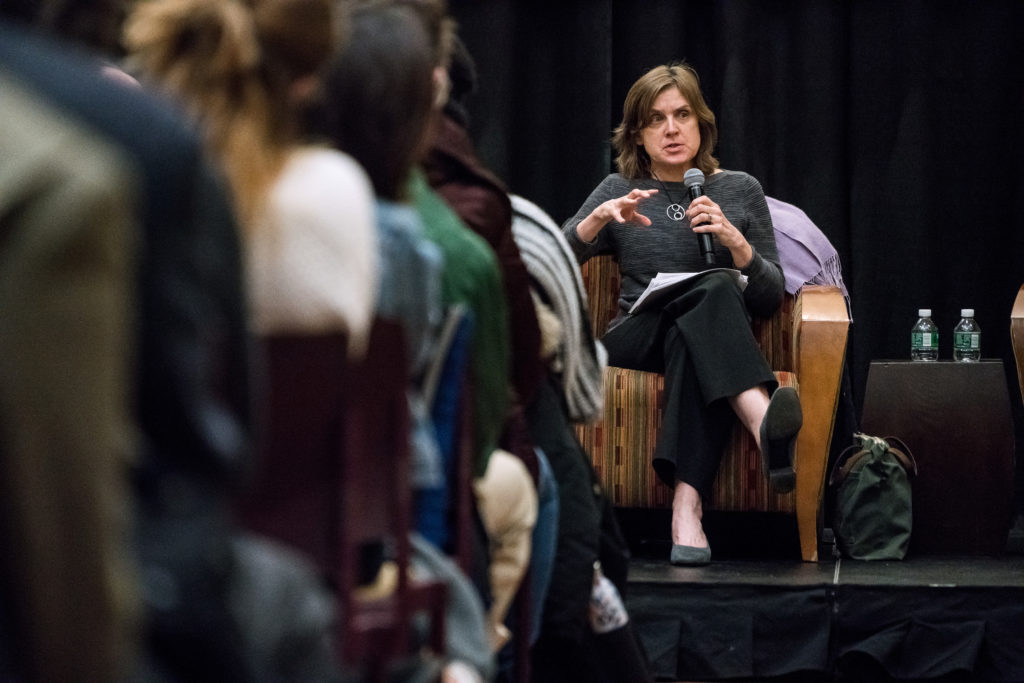Spotlight team discusses racism in Boston
February 20, 2018
Is Boston racist?
The Boston Globe’s Spotlight team believes so.
The Spotlight team recently investigated whether Boston deserves its reputation as one of the most racist cities in the country. Several members of the team – Patty Wen, Adrian Walker and Liz Kowalczyk – came to Northeastern Feb. 12 to discuss the team’s findings and consider solutions to improve the city’s race relations.
“Boston has such a liberal reputation,” said Wen, the Spotlight team’s editor. “We’re so solidly Democratic, we have so many universities, so many young people, and yet there’s this contradiction in terms of the sort of racial image of the city which persists to this day.”
In their research, the team, which specializes in long term reporting on public corruption, found that people of color consider Boston to be one of the least welcoming cities, less welcoming than Southern cities like Atlanta or Charlotte, North Carolina.
“Everything is worse than I thought it was,” said Globe columnist and Spotlight team member Walker. “When we ran that data, all of it was just shocking to me.”
Many attendees of the event shared their experiences with racism in the city, ranging from doctor’s offices to education systems.
“I definitely saw racism [growing up],” said 1988 Northeastern alumnus Dawn Haynes, who attended the event. “I think people are afraid to have those conversations still. As liberal as Boston is, we’re not being honest, we’re not being transparent.”
Their research showed that only seven percent of university students in Boston are black. Similarly, Boston has never elected a black mayor. Wen suggested that a major cause of local racism is a sense of complacency in the city with this reputation.
“[There is] a mindset in this city that I think still exists,” she explained. “People don’t see anything wrong with that picture, and I think that is part of what’s wrong.”
Another cause, Walker said, lies in how small the black population is within the city.
“I don’t think there’s any one cause for it,” Walker said. “A lot of it is demographic, but not all of it.”
In their seven-day news series published in December, the Spotlight team highlighted that Seattle and Minneapolis have elected black mayors, despite having a smaller black population than Boston.
“The issues we’re talking about with race in Boston don’t have to do with who’s in the White House right now,” Wen said. “It’s about the city.”
The panel discussed potential solutions to Boston’s racism problem with the audience and suggested that spreading awareness of the issue will help spark a positive conversation.
“It doesn’t have to wait for political power, it doesn’t have to wait for more black people to get elected to office,” Walker said. “That kind of change should be happening now.”
Once the citizens of Boston understand there’s a problem, they will be able to reflect on how they contribute to it — whether actively or subconsciously — and alter their behavior, said Kowalczyk.
“I think about my own behavior on the subway,” Kowalczyk said. “Am I sort of unconsciously engaging in this kind of behavior…It’s just really important for people to sort of examine their own behavior.”







